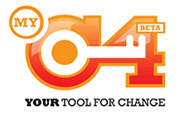Last week I published a short overview on the new p2p microfinance service Zidisha.org. Now Julia Kurnia, Director and Founder of Zidisha.org answers my questions.
P2P-Banking.com: What is Zidisha about?
Julia Kurnia: Zidisha uses internet and mobile phone technology to connect entrepreneurs in the world’s most isolated, impoverished areas with the international P2P lending market. Zidisha supplies the key services needed to overcome the geographic barrier between lenders and borrowers – local credit history verification, low-cost electronic money transfers, independent tracking of borrower performance history – then gets out of the way and lets lenders and entrepreneurs interact directly. Zidisha’s philosophy is similar to that of eBay, which really advanced the opportunities of small entrepreneurs in the US by supplying a regulated venue in which business growth is limited only by entrepreneurs’ own creativity and track record of responsible conduct.
P2P lending has vast untapped potential to open up better economic opportunities for motivated people in low-income countries. Africa in particular is home to a growing class of entrepreneurs who, while economically disadvantaged, are computer-literate and have verifiable credit histories with local microfinance institutions – all of which can be tapped to supply many of the communication and record-keeping services traditionally performed by local banks and microfinance institutions. Zidisha is designed to serve this type of borrower. In this sense, it is complementary to services such as Kiva and MyC4, which allow more marginalized borrowers without computer access to fund loans via local intermediary microfinance organizations.
P2P-Banking.com: How do African Entrepreneurs react to the possibility of posting a loan application online and getting it funded by strangers?
Julia Kurnia: I think this is best answered by Ms. Ndeye Sarr, a lady in West Africa who single-handedly supports a family of five sewing clothing by hand. She is raising a loan on Zidisha to buy an electronic sewing machine, which will allow her to meet client demand faster and grow her business to where she can support her household comfortably and keep her kids in school through college. Last week Ms. Sarr stopped by a local cybercafé to check on the progress of her loan application and upload some photos of the traditional clothing she produces, and she posted the following comment:
“I have just visited the Zidisha website, and see that the lenders are still continuing to support me, so that I can really start up a proper business activity. I would like to thank all those who are helping to finance my enterprise. I’m so happy to see that people on the other side of the world are willing to lend a hand to those who do not have the resources to earn their own honest living.“ (translated from the original French) Continue reading →

 As reported in the past
As reported in the past  Based on her experience in founding SEM Fund, Kiva’s oldest filed partner in Senegal, Julia Kurnia believes there is a vast untapped potential for p2p lending in microfinance.
Based on her experience in founding SEM Fund, Kiva’s oldest filed partner in Senegal, Julia Kurnia believes there is a vast untapped potential for p2p lending in microfinance.